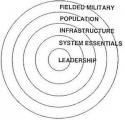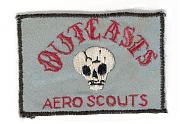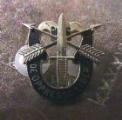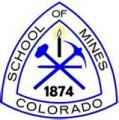[Chinghis Khan's letter of invitation to Ch'ang ch'un]
//[p.37] Heaven has abandoned China owing to its haughtiness and extravagant luxury. But I, living in the northern wilderness, have not inordinate passions. I hate luxury and exercise moderation. I have only one coat and one food. I eat the same food and am dressed in the same tatters as my humble herdsmen. I consider the people my //[p.38] children, and take an interest in talented men as if they were my brothers. We always agree in our principles, and we are always united by mutual affection. At military exercises I am always in the front, and in time of battle am never behind. In the space of seven years I have succeeded in accomplishing a great work, and uniting the whole world in one empire. I have not myself dis- tinguished qualities.
But the government of the Kin is inconstant, and therefore Heaven assists me to obtain the throne (of the Kin). The Sung to the south, the Hui ho to the north, the Hia to the east, and the barbarians in the west, all together have acknowledged my supremacy. It seems to me that since the remote time of our shan yü such a vast empire has not been seen. But as my calling is high, the obligations incumbent on me are also heavy; and I fear that in my ruling there may be something wanting. To cross a river we make boats and rudders. Likewise we invite sage men, and choose out assistants for keeping the empire in good order. Since the time I came to the throne I have always taken to heart the ruling of my people; but I could not find worthy men to occupy the places of the three (kung) and the nine (k'ing). With respect to these circumstances I inquired, and heard that thou, master, hast penetrated the truth, and that thou walkest in the path of right. Deeply learned and much experienced, thou hast much explored the laws. Thy sanctity is become manifest. Thou hast conserved the rigorous rules of the ancient sages. Thou art endowed with the eminent talents of celebrated men. For a long time thou hast lived in the caverns of the rocks, and hast retired from //[p.39] the world; but to thee the people who have acquired sanctity repair, like clouds on the path of the immortals, in innumerable multitudes. I knew that after the war thou hadst continued to live in Shan tung, at the same place, and I was always thinking of thee. I know the stories of the returning from the river Wei in the same cart, and of the invitations in the reed hut three times repeated. But what shall I do? We are separated by mountains and plains of great extent, and I cannot meet thee. I can only descend from the throne and stand by the side. I have fasted and washed . I have ordered my adjutant, Liu Chung lu, to prepare an escort and a cart for thee. Do not be afraid of the thousand li. I implore thee to move thy sainted steps. Do not think of the extent of the sandy desert. Commiserate the people in the present situation of affairs, or have pity upon me, and communicate to me the means of preserving life. I shall serve thee myself. I hope that at least thou wilt leave me a trifle of thy wisdom. Say only one word to me and I shall be happy. In this letter I have briefly expressed my thoughts, and hope that thou wilt understand them. I hope also that thou, having penetrated the principles of the great tao, sympathisest with all that is right, and wilt not resist the wishes of the people.
Given on the 1st day of the 5th month (May 15),1219.





 ), but rather to get folks talking and (hopefully) thinking about what the slide suggests and doesn't suggest. He didn't put it forward as being definitive in any way, and we should keep that in mind when we discuss it.
), but rather to get folks talking and (hopefully) thinking about what the slide suggests and doesn't suggest. He didn't put it forward as being definitive in any way, and we should keep that in mind when we discuss it.










 . Basically, since I have to do a lecture version first, I am leaning towards a thematic or functional focus for each lecture and trace it through time, with the last part relating to current operations.
. Basically, since I have to do a lecture version first, I am leaning towards a thematic or functional focus for each lecture and trace it through time, with the last part relating to current operations.

Bookmarks